|
|
Post by Admin on Jan 25, 2020 6:30:37 GMT
The audience knew the performance it had just witnessed at the 2020 U.S. Figure Skating Championships wasn’t very good and certainly wouldn’t lead to any kind of a medal. Nonetheless, the spectators cheered warmly. Some stood and applauded. Their ovation lingered. Gracie Gold knew what was happening. “I just think it was the story,” she said minutes later. “They weren’t standing for the skating.” 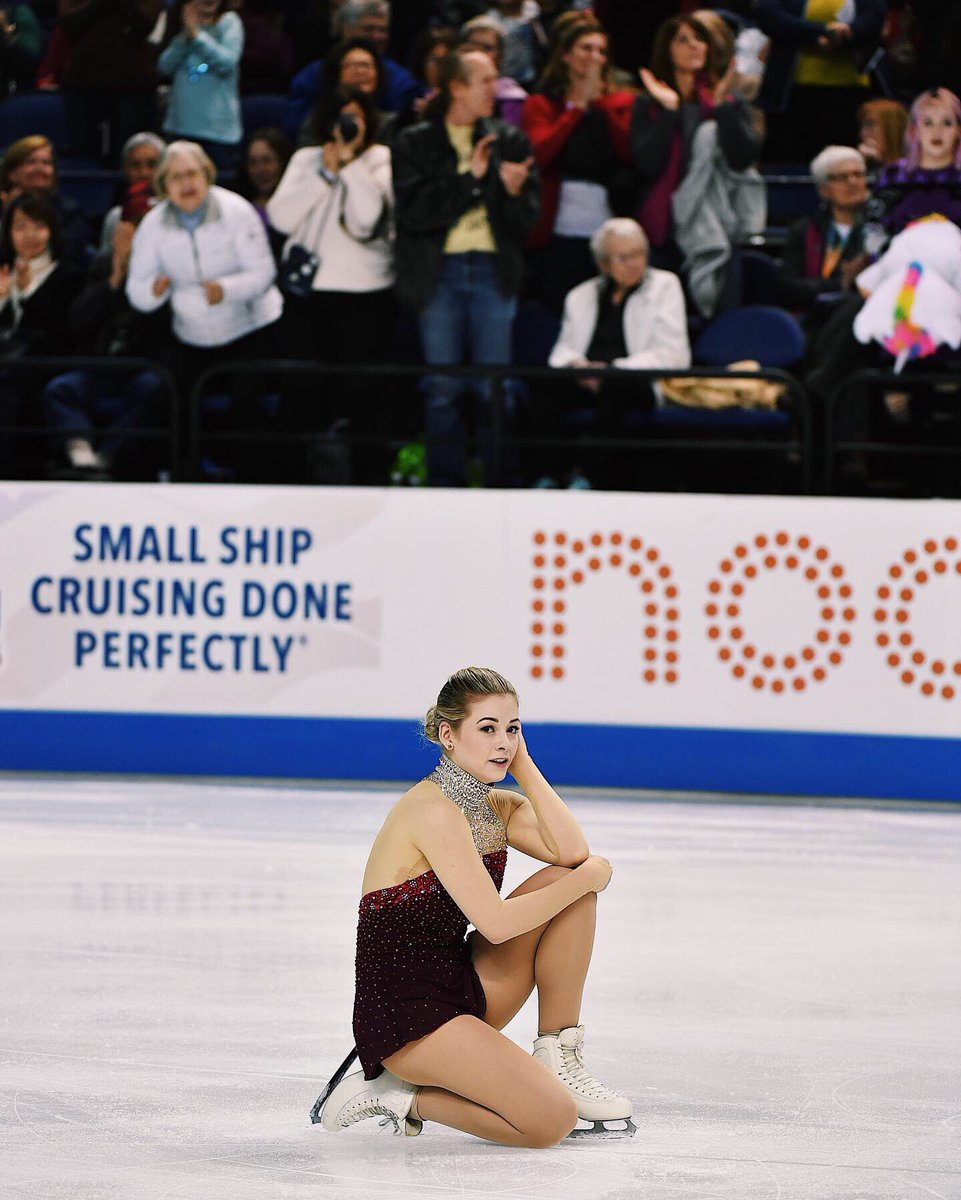 A comeback in figure skating is a rare occurrence, if only because careers are usually so short that they often end even before a skater gets that second chance. Gold, 24, a popular two-time U.S. champion and 2014 Olympic team bronze medalist, last skated at the nationals in 2017. 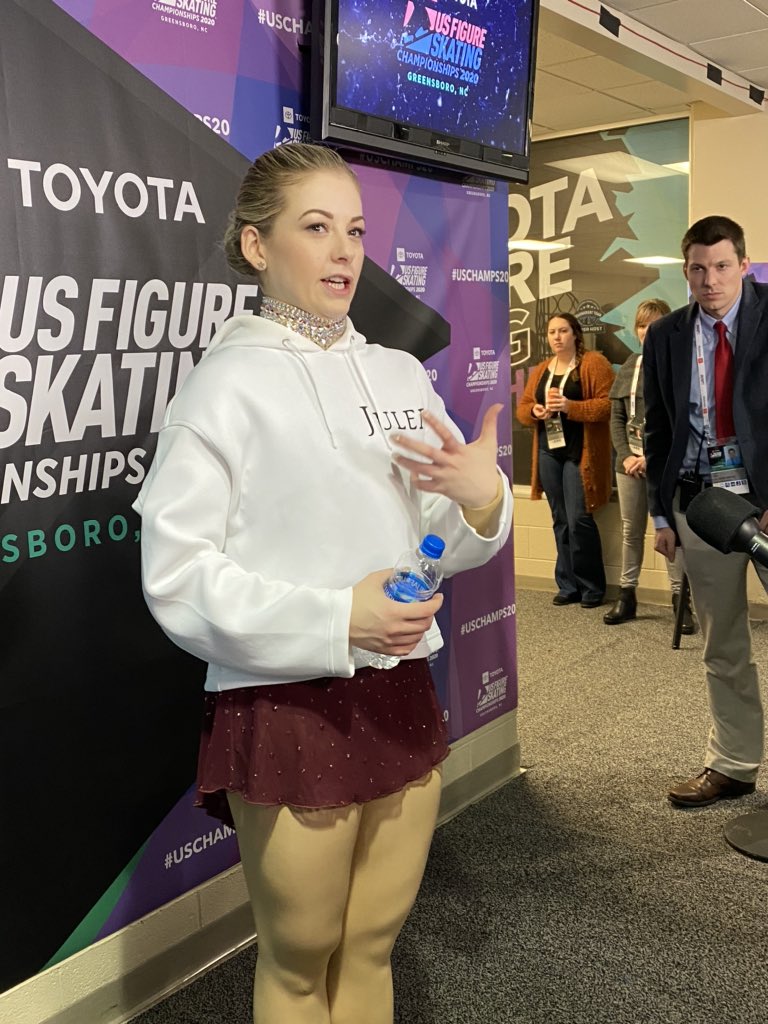 Now here she was, trying again three years later. Where had she been? “Retired. Out of shape. Off the grid. Mentally ill. The whole works,” she said. After undergoing treatment for what she said was depression, anxiety and an eating disorder in 2017, and missing the 2018 Olympic season, Gold attempted a comeback in 2019 but fell short of the nationals. This time, she made it, and she arrived with the hope that the lofty promise her sport once had placed in her had come along too. Her strong practices here this week had only added to the optimism. Perhaps Gracie really was back. |
|
|
|
Post by Admin on Jan 25, 2020 18:38:36 GMT
Alysa Liu successfully defended her women's title at the U.S. Figure Staking Championships in North Carolina on Friday after the 14-year-old delivered a brilliant free skate routine. Liu won by a runaway 10 points over Mariah Bell with a performance that stamped her as one of America's biggest hopes heading toward the 2022 Winter Olympics. Liu, skating to Illumination by Jennifer Thomas, landed two triple Axels and a quad Lutz to impress the judges, who gave her a score of 160.12 for a 235.52 points total including the short program. 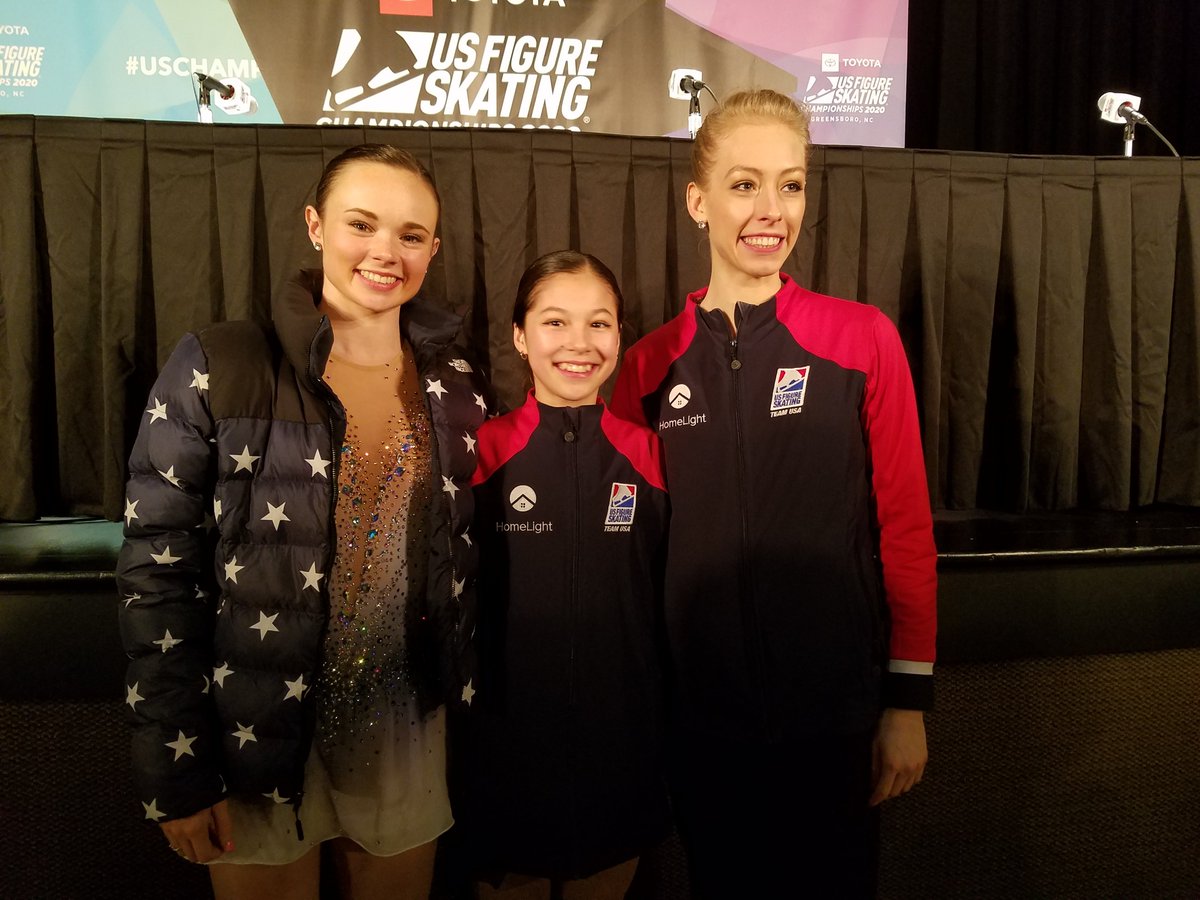 Bell finished second on 225.21 while Bradie Tennell, the 2018 champion who led after the short program, had a fall and dropped to third place. "I didn't really expect any result, like first, second or third," said Liu. "I just wanted to skate a clean program, that's always my goal. I always want to do better than before." 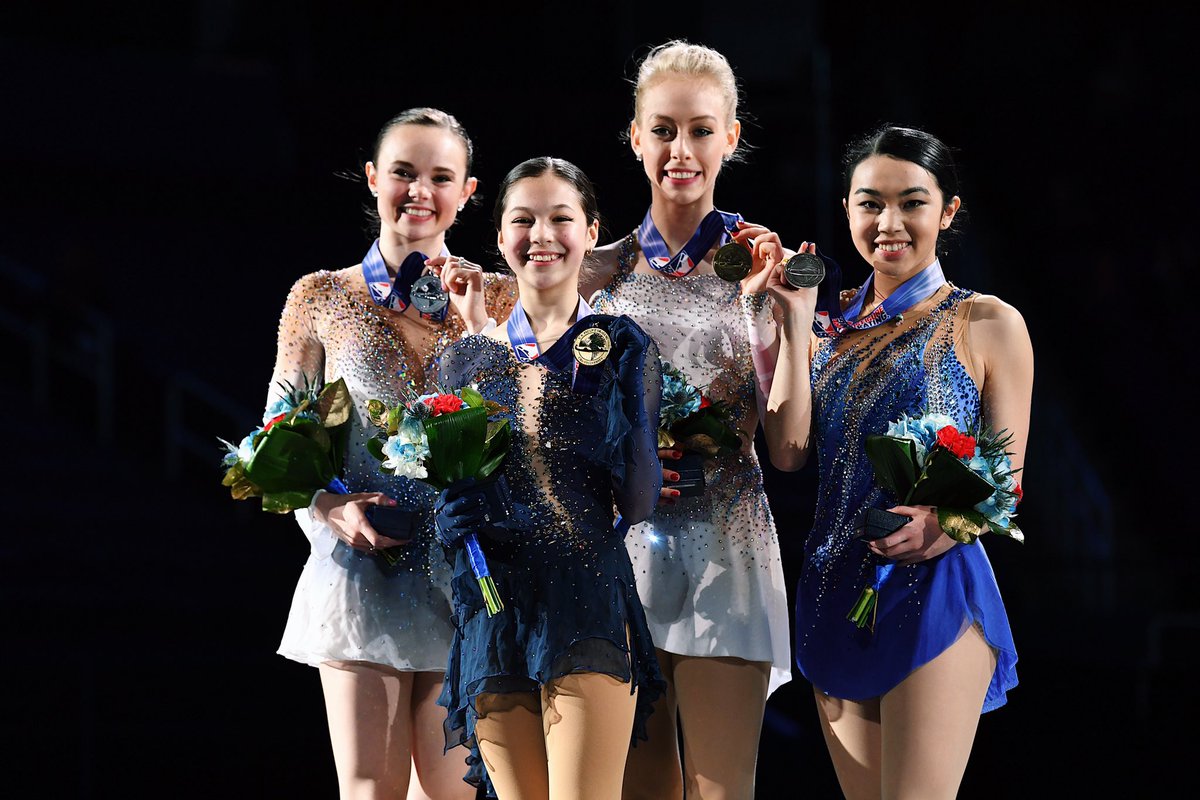 Liu said she knew she needed a strong showing to surpass Bell. "I was kind of inspired by her emotion and happiness. It inspired me at the end of my program to relaxed and be happy and aware of the moment." Some of the biggest cheers of the night were reserved for Olympic bronze medalist Gracie Gold, competing in her first nationals for three years after dealing with depression and an eating disorder. Gold, who finished 12th, received a standing ovation after her routine, and the 24-year-old wiped away tears as the crowd rose to their feet. "I felt very emotional when the crowd stood up, and then they kept standing long after what that performance warranted," said Gold. "I felt emotional before I even started because the sound the audience made. It was kind of strange. I've had excited cheers, but never the full arena pulling for my existence on the ice." |
|
|
|
Post by Admin on Jan 26, 2020 0:54:02 GMT
Nathan Chen broke his own U.S. Figure Skating Championships short program scoring record, hitting two quadruple jumps en route to a whopping 13.14-point lead on Saturday.
Chen, trying to become the first man to win four straight national titles since Brian Boitano in 1988, tallied 114.13 points. Jason Brown, the 2015 U.S. champion, is in second after beating Chen in artistic marks but lacking a quad. Andrew Torgashev is the surprise third-place skater going into Sunday’s free skate.
Chen hit a quad flip, triple Axel and a quad toe-triple toe combination in Greensboro, N.C., on limited practice due to a recent flu.
“I’m thrilled with it,” Chen, a Yale sophomore, said on NBC. “This was probably the least prepared I’ve been, but I really made good use of the last week, the week that I was able to actually start getting training in.”
|
|
|
|
Post by Admin on Jan 26, 2020 21:02:53 GMT
Though the US Figure Skating Championships were filled with groundbreaking performances, the most moving by far wasn't by any medalist, but by the 12th-place finisher in the ladies' event. After years away from the sport, during which she sought treatment for anxiety, depression, and an eating disorder, two-time national champion and 2014 Olympic medalist Gracie Gold made her return to nationals — and while she landed far away from the podium, she ultimately won the night.
Choreographed to Sara Bareilles's "She Used to Be Mine," a signature song from the musical Waitress, Gracie's free program was intensely emotional from start to finish. The song's lyrics seemed to perfectly reflect her struggles on and off the ice: "If I'm honest, I know I would give it all back / For a chance to start over and rewrite an ending or two / For the girl that I knew."
In spite of that, Gracie remained focused, landing four difficult triple jumps, two of which were perfectly clean. Though her technical content couldn't quite keep up with the top ladies in the event, it was clear by the end of the performance that no one in the crowd cared about the scoring. Gracie visibly cried while taking her bows before a stadium-wide standing ovation. Even commentator and former Olympic champion Tara Lipinski got choked up while quoting Gracie's words back to viewers: "Sometimes the magic is in the journey, and it's not in a 'perfect' performance."
The championships marked Gracie's first top-level competition in years. After faltering and landing off the podium at the 2016 World Championships, she hit some rough patches. She later spoke candidly about stepping away from skating to focus on her recovery. Her first attempted comeback in the fall of 2018 was largely unsuccessful, as she withdrew from the second half of the competition at the 2018 Rostelecom Cup and again dealt with setbacks. This season, she was required to qualify to nationals through the lower-level competitions that elite skaters typically bypass, but successfully earned a berth that paved the way for this incredibly touching moment on the national stage. Watch the full performance and the crowd's reactions above.
|
|
|
|
Post by Admin on Jan 27, 2020 21:29:52 GMT
Rafael Arutunian showed me a photo on his phone of Nathan Chen sleeping on the floor in a dressing room at Great Park Ice Arena when he was supposed to be practicing earlier this month. Arutunian said he could have taken the same picture on eight days in the 2 1/2 weeks they spent together at his Irvine, Calif., training base during Chen’s semester break from Yale. Arutunian would see the flu-ridden and feverish Chen curled up asleep, turn off the light, leave the room and wait until Chen woke up before trying to have him do any training. In the past, Arutunian said, Chen could train through sickness. This time it was futile. “He couldn’t move,” Arutunian said. It wasn’t until about 10 days ago, after Chen returned to college on the East Coast, that he was able to do anything resembling training. At that point, the coach knew he had to be more hands-on than usual, or as much as he could be from 3,000 miles away. “This time, I was managing everything, calling every day to give him exactly what he needed to do to get ready for the U.S. Championships,” Arutunian said. What Chen did on the ice Saturday and Sunday left Arutunian shaking his head in admiration. He landed six clean quads in six attempts, two in the short program Saturday, four in the free skate Sunday. The short program was of the surpassing excellence that forces writers to exhaust the superlatives in our language for accurate portrayals of his skating. 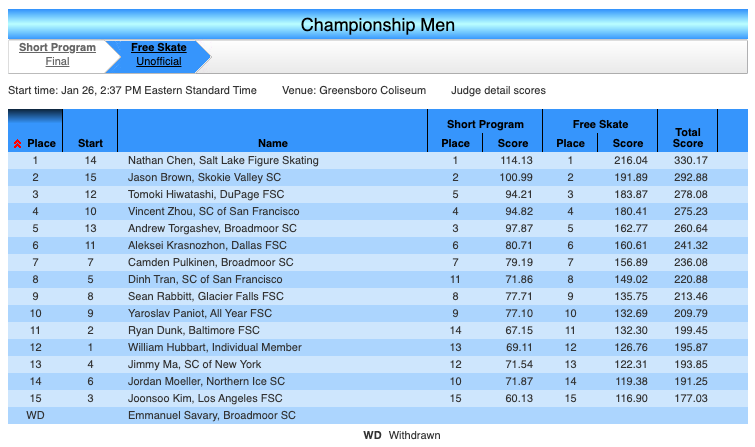 The free skate did not require consulting a dictionary for new ways to say extraordinary. That was not unexpected, given how diminished fitness figured to take a toll over the length of a free skate, four minutes, compared to the two minutes, 50 seconds in the short. Yet Chen’s overall skating still drew superlatives from Arutunian, not a coach given to gushing. “I don’t know anybody who could recover and do what he did after that sickness,” Arutunian said. |
|